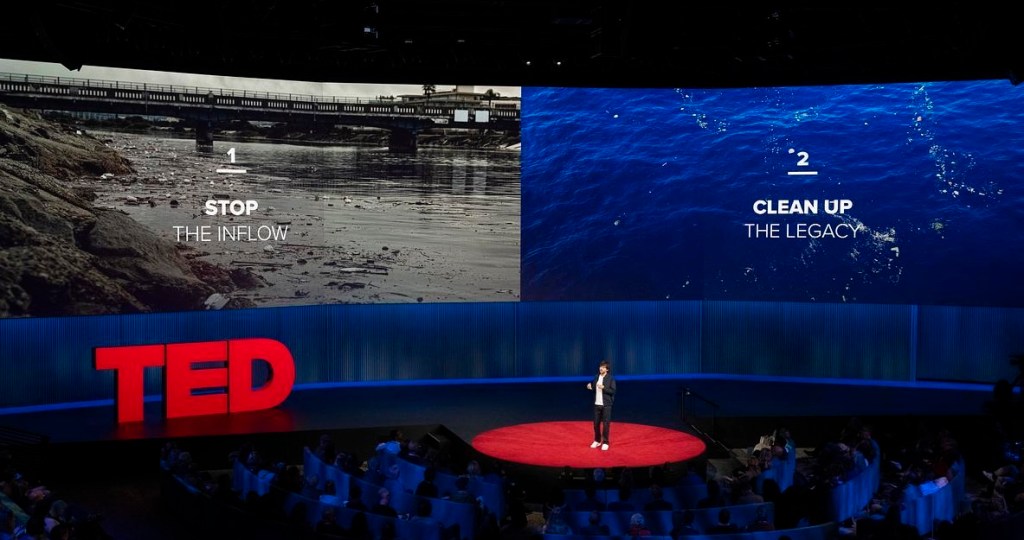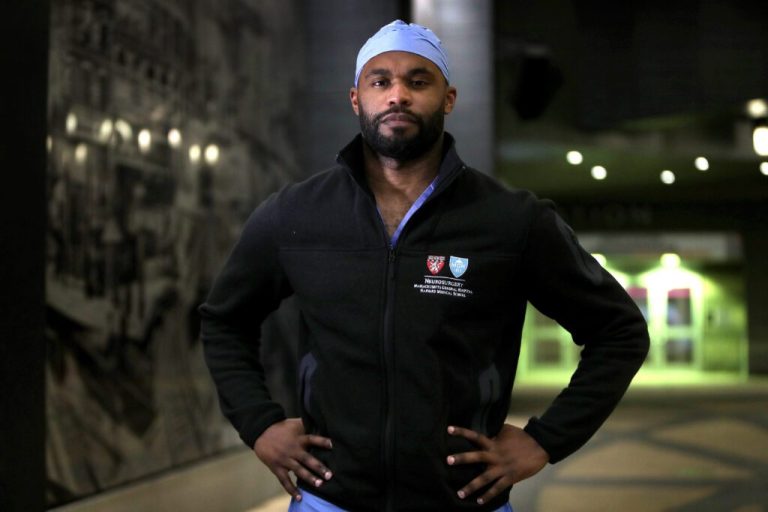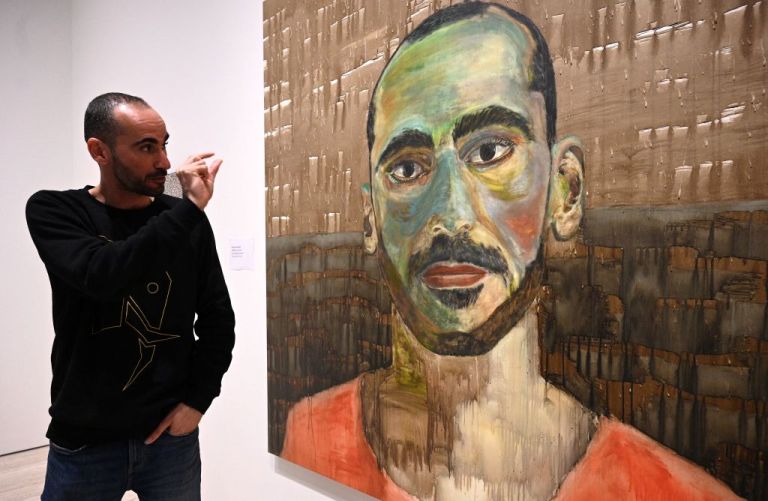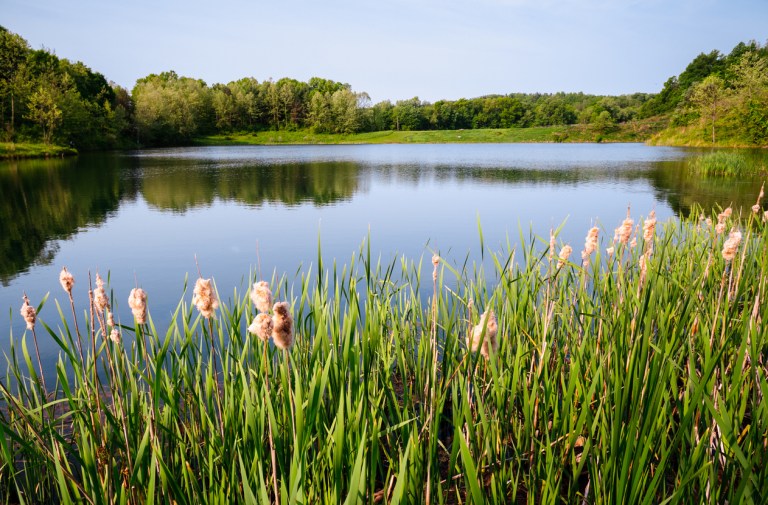Today the sun set on one of the most inspiring weeks of the year: TED2025. The event, which took place April 7-11 in Vancouver, Canada, featured dozens of thought-provoking TED Talks, spotlighting innovative scientists, storytellers, global leaders, and more — all centered on this year’s theme, “Humanity Reimagined.”
The throughline for the week was “AI is gaining power at an astonishing pace, prompting a question that’s both alarming and illuminating: What are humans for?” To find the answer, the conference brought “those who can show what human flourishing might look like in the years ahead” onto the stage, and their perspectives were nothing short of eye-opening.
Missed the conference? We rounded up some of our favorite thought leaders from TED2025: Check out the highlights of their talks below.
Wawira Njiru: Founder and CEO of Food4Education

What do you see when you picture world hunger? Starving children in Africa and the aid workers helping them? If so, Wawira Njiru encourages you to reframe your mental image. “Now, picture something else: A farmer harvesting fresh crops, secure in the knowledge that they will feed local schoolchildren,” she told the TED audience, adding, “Bustling kitchens across Kenya, serving thousands of meals daily, powered by clean energy and run by local women.”
Instead of treating hunger as a crisis that Africa suffers and one that must be solved by the West, Njiru imagines a world where Africa has the “blueprint to feeding the future.” And it’s that future that she’s working toward via her nonprofit, Food4Education. Serving over 450,000 children in Kenya each day, the organization created a design for affordable school feeding programs and helps schools across Africa replicate it, all with the goal of assisting government leaders and communities in making accessible student lunches the norm.
Boyan Slat: Founder and CEO of The Ocean Cleanup
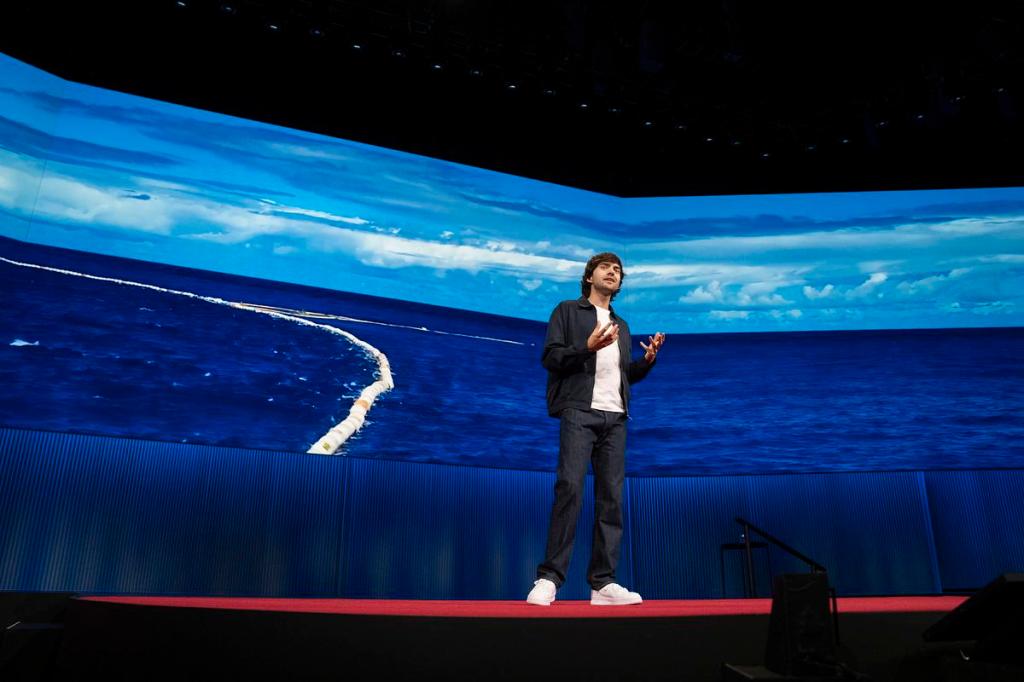
The largest ocean cleanup in history is being spearheaded by Boyan Slat, who founded The Ocean Cleanup at just 18 years old. Spurred by his own scuba diving experience at 16, during which he came across “more plastic bags than fish,” Slat asked himself: “Why can’t we just clean this up?”
So he set out to do exactly that. The Ocean Cleanup is not only on a mission to get rid of legacy plastic, aka the stuff already floating in the ocean, but also to develop large-scale technologies that can stop new plastic from entering. One way it does this is through the Interceptor Original, a scalable technology that uses natural forces like solar power to prevent river debris from flowing into the sea. The organization has set a goal to bring Interceptors to 30 cities around the world, which, its models predict, will stop up to one-third of all the plastic currently entering the ocean.
And by 2040, The Ocean Cleanup aims to collect 90% of floating ocean plastic pollution. “Once the oceans are clean again, it can be this example of how, through hard work and ingenuity, we can solve the big problems of our time,” Slat said during his TED Talk.
Sitoyo Lopokoiyit: CEO of M-PESA Africa
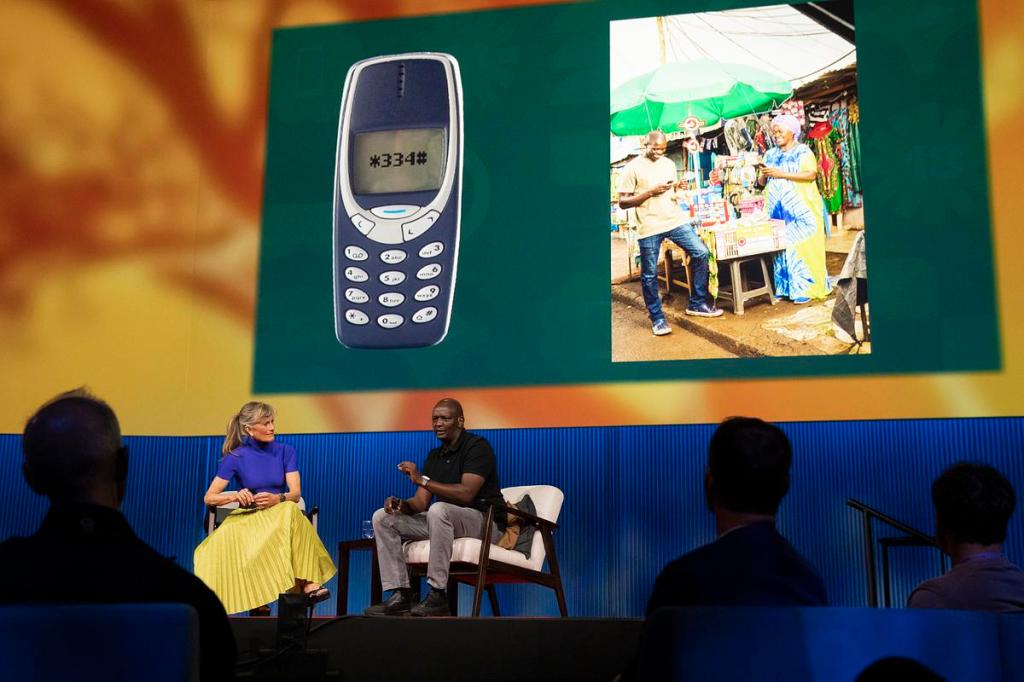
You can liken M-PESA Africa to Venmo — but with a significant social impact twist. Both apps foster financial transactions, but M-PESA offers its services to people across Africa who either don’t have bank accounts or have limited access to banking services. Users can receive their salaries, pay their bills, get short-term loans, and more.
When the app — the continent’s largest fintech platform — initially launched in 2007, it set out to “make domestic remittance as simple as sending a text.” But today, in markets like Kenya’s, over 60% of the country’s GDP flows through M-PESA, per CEO Sitoyo Lopokoiyit, with over $400 billion of annual transactions in the ecosystem.
“We enter there every single day trying to solve real-life problems,” he said during his TED Talk, citing a Braille smartwatch that was created to make M-PESA’s financial transactions accessible to the 1 million blind people in Kenya. Now, Lopokoiyit said, the organization continues to answer the question, “How do those people who are excluded get to do financial services with dignity?”
Chris Bahl: President, CEO, and Founder of AI Proteins
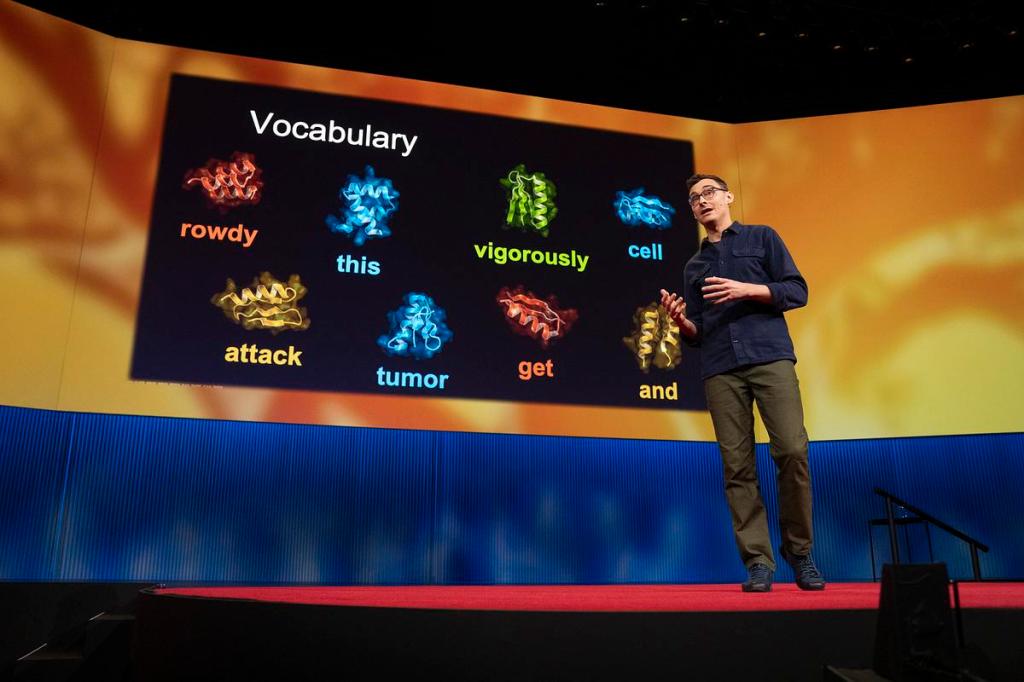
According to Chris Bahl, “modern medicines, while amazing, are the linguistic equivalent to only knowing a single word.” So his company, AI Proteins, is focused on becoming “fluent in the language of cells” — and “unlocking the next generation of medicines that are safer and more effective,” he told TED attendees.
To accomplish this, Bahl’s team built a new type of protein, designed from generative artificial intelligence, dubbed “miniproteins.” They’re created entirely from scratch, giving scientists the flexibility to control how the proteins interact with cells in the body. “For example, we can now ‘talk’ with a particular type of immune cell,” he explained, adding, “And we can tell them to go out and attack cancer.”
So far, these AI proteins have been used in mice to treat joint inflammation, control blood glucose levels, and direct treatment for leukemia — “and we are just getting started,” Bahl said.
Dr. Dean Ornish: Founder and President of Preventive Medicine Research Institute
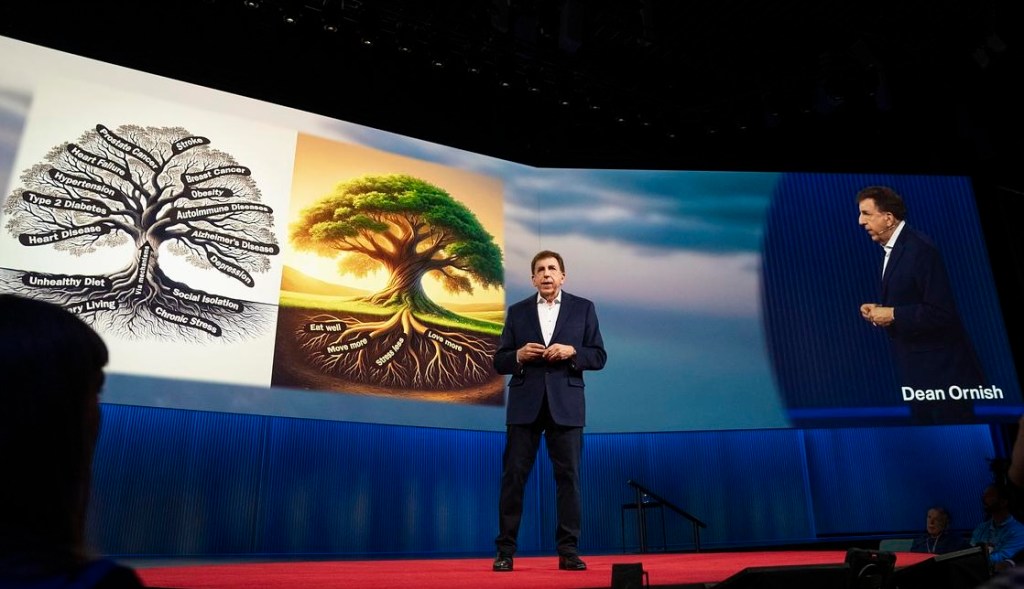
Dr. Dean Ornish believes we already have a powerful solution for preventing, treating, and reversing the progression of common chronic diseases. It doesn’t cost anything, and it comes with positive side effects to boot. He’s talking about lifestyle medicine: using lifestyle changes to accomplish those very goals, which Ornish believes is “the most exciting and revolutionary movement in health care today.”
Through his nonprofit, Preventive Medicine Research Institute, he found that these adjustments can often reverse coronary heart disease, Type 2 diabetes, and other conditions. When you change your lifestyle — which Ornish sums up as eating well, moving more, stressing less, and loving more — “it actually changes the expression of your genes,” he explained to audience members, adding: “Our genes are a predisposition but our genes are not always our fate.”
Amaury Guichon: Co-Founder of the Pastry Academy by Amaury Guichon
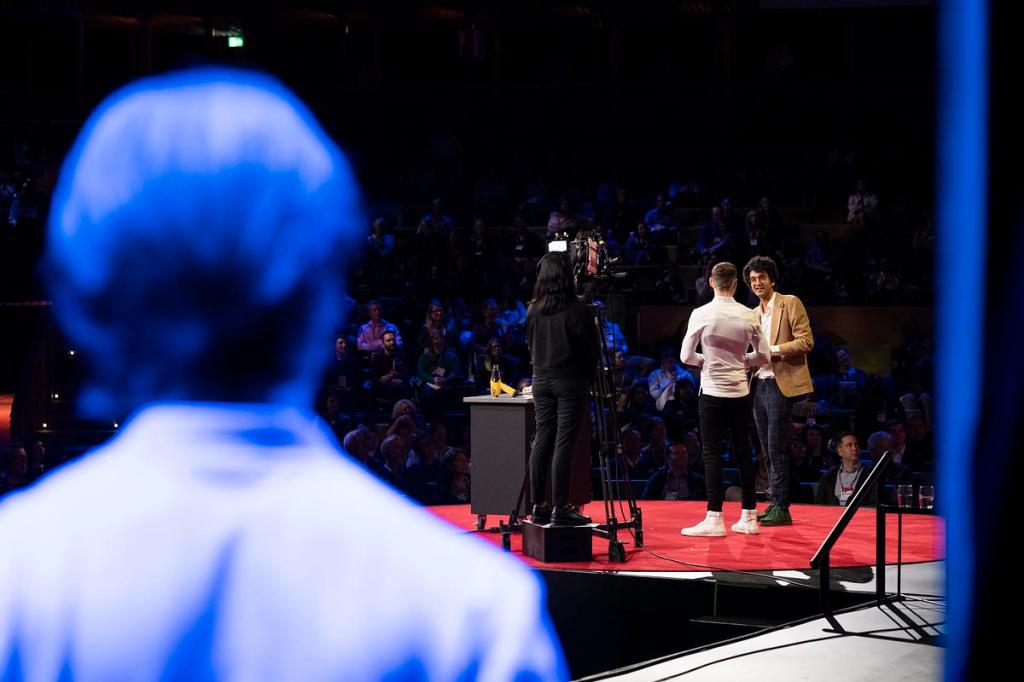
Amaury Guichon was named the “World’s Most Creative Pastry Chef” by La Liste in 2023, and has racked up billions of views on social media — and if you’ve ever seen him in action, you know exactly why. Co-founder of the Pastry Academy by Amaury Guichon, the artistic chef is famous for crafting life-size, incredibly detailed sculptures out of chocolate. But in his recent TED Talk, we got to learn a little about the man behind the dessert.
Originally from France, Guichon began his foray into the culinary arts at 14 years old, but honed his skills after receiving an opportunity to move to Las Vegas when he was 21. “The extravagance from Vegas was a perfect pairing with my ability to craft wonders,” he said. Guichon, now 34, also explained how he’s able to fashion dazzling creations entirely out of chocolate. “It’s the beauty of the material,” he shared, adding, “Chocolate can do everything by itself and is 100% fully edible.”
Guichon later showed off his skills live onstage, putting the final touches on an intricate chocolate clock. “I feel like I’m watching surgery here,” quipped co-host Latif Nasser.
RELATED: Medical Marvels: 8 Recent Innovations That Are Helping Improve Health Care
